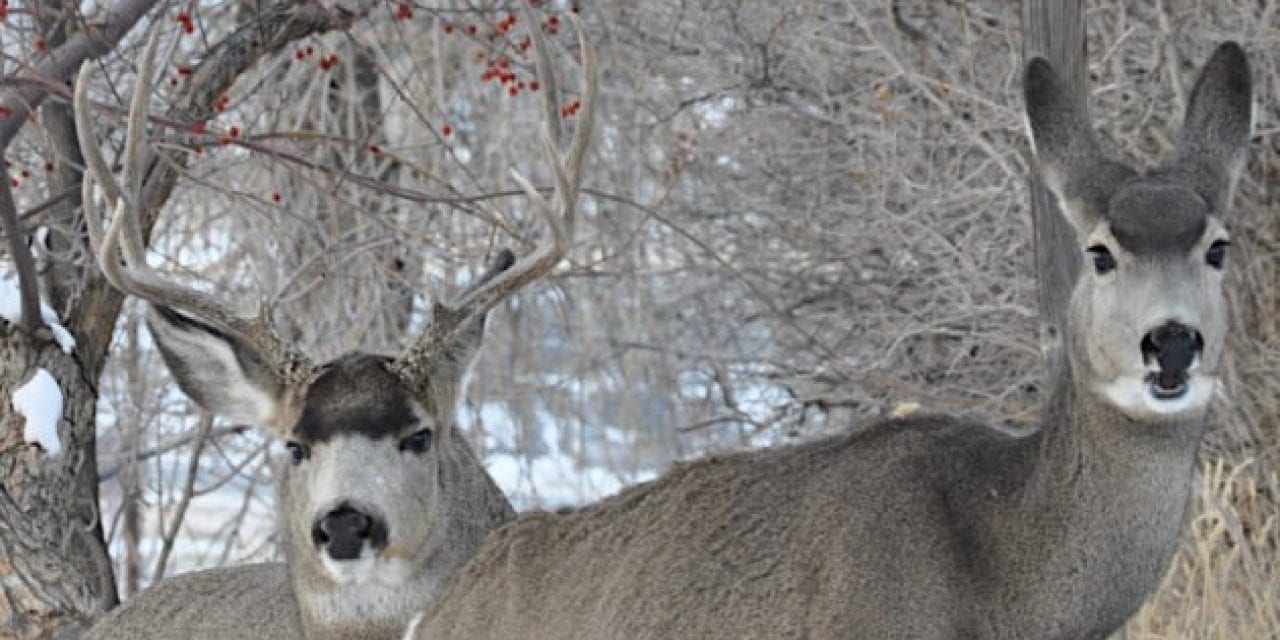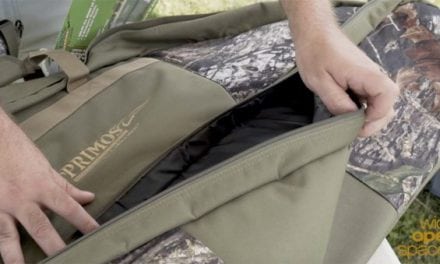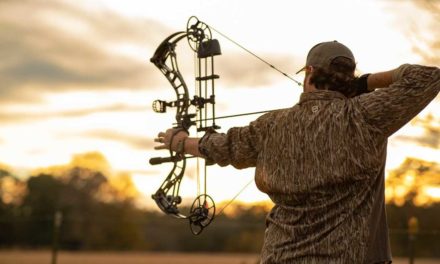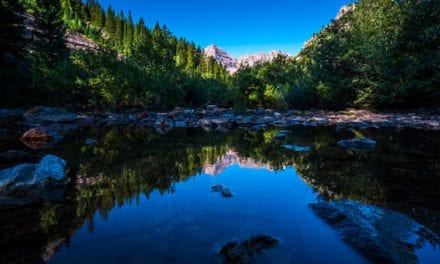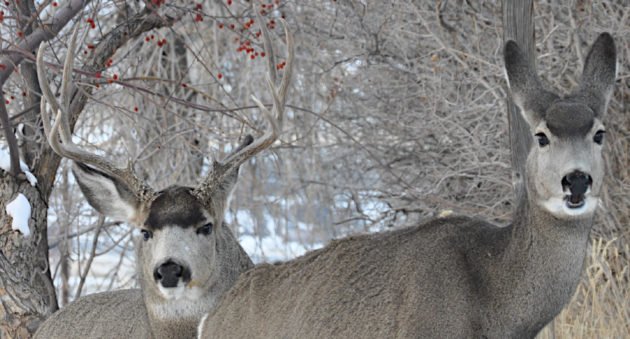
The BBC painted something of a bleak portrait of hunting in North America.
The British Broadcasting Corporation recently put out an interesting piece discussing the future of hunting here in North America, and it has us wondering what we should take away from it.
The piece admittedly paints a bleak picture of the future of hunting in America. As you could probably tell by the title: “Are US Hunters Becoming an Endangered Species?” Way to depress me today, BBC.
Of course, to be fair, the piece points out the biggest problem we hunters are facing right now. A lack of youth. The article reports hunter numbers have dropped from a peak of 17 million in 1982 to 15 million today according to U.S. Fish and Wildlife Service numbers.
The news service interviewed Michigan Technical University Professor Richelle L. Winkler on the subject. Winkler told the publication that the number of men and women taking up the sport isn’t at a high enough pace to replace hunters dropping out.
“I don’t see this as something that can be reversed,” Winkler told the BBC.
To be honest, we’re not too surprised by that opinion. We hate to begrudgingly agree with it, but I’ve touched on this subject before. The BBC’s classification of hunting facing a “demographic time bomb” is not all that far-fetched. To be fair, I don’t think most of us alive today will see the end of hunting, but if current trends continue, it’s a real possibility.
The Trends
But it isn’t just hunter numbers. This piece also highlights the other glum news that we hunters already knew, the decline of the hunting industry. To be clear, the hunting industry isn’t dying. As the BBC reports, it’s a nearly $24 billion annual industry. But it also certainly isn’t being helped when Dick’s Sporting Goods starts eliminating hunting gear and guns from stores. Oh, and when they start selling off Field and Stream stores to Sportsman’s Warehouse.
The other thing the piece neglects to mention is Cabela’s financial woes. This beloved outdoor brand is now owned by Bass Pro Shops after declining sales and years of mismanagement at the top.
Here at Wide Open Spaces, we talk to plenty of hunting brands, both the large companies like Savage Arms with a worldwide presence and the little, local guys, like Airlocker, located in a garage in my town of Marcellus, Michigan. Ask anyone with either business how the outdoor industry is right now, and they’ll tell you it’s tough to break in and be successful right now.
It all points to a larger problem. Less hunters in the woods buying gear for their adventures.
Hunting’s Image
One thing the BBC looked at with their piece is hunting’s image in the public eye. I’ve touched upon this in the past with a few other pieces. While the BBC reports 80 percent of American’s approve of hunting, they also note support depends greatly on WHY someone is hunting.
They note public support is much more accepting of hunting to protect people or property. Or for population control purposes. But support falls significantly for trophy hunting. You only need to look at the Cecil the Lion incident or what happened to Josh Bowmar after a spear bear hunt to see hunters dragged through the mud for otherwise legal activities.
It falls in line with what I’ve thought for several years now. Hunting has an image problem. Which is why we find it somewhat refreshing to see the BBC devote part of the article towards finding and quoting newer hunters who have taken up the sport for sustainable, ethically taken meat.
It makes me think hunting could use some rebranding. Get away from all the shows that focus only on harvesting a giant buck or bull and instead turn it towards self-reliance and gathering your own meals. Just look at Steven Rinella. His show, MeatEater, is on Netflix where masses of people who have never been exposed to hunting get to see it.
We recently interviewed Rinella and he told us they get emails from people, even vegans and vegetarians, who have changed their mind on hunting thanks to the show. It leads me to believe this is how hunting should be branded going forward, as a sustainable, environmentally-conscious thing to do.
I know some hunters won’t like hearing parts of hunting should be rebranded as something that will appeal to the hipster crowd. But what choice do we have? Hunting is slowly sinking and unless we find a way to right the ship, it’s on its way to the bottom eventually.
By the way, I’m not trashing people who do hunt for trophies. I pass up the small bucks myself because I don’t really feel the need to harvest them. But we should be looking at alternative options if we want to save our favorite pastime.
The Big Picture
Whoever researched the BBC piece did a good job of nailing down the biggest concerning factor with hunting and that’s funding for the preservation of the natural resources we all know and love. The piece notes that a decline of waterfowl hunters in South Dakota has directly contributed to the budget for the state’s Department of Game, Fish and Parks being slashed by 12 percent.
That should worry everyone who loves the outdoors and not just hunters. It should worry the hikers, campers, bird watchers and anyone else who enjoys a South Dakota State Park. Because a loss of funds means trails aren’t improved. Bathroom facilities in campgrounds aren’t maintained. And perhaps worst of all, areas that should get protection for endangered species, instead get none.
For me, the funding problem hunting creates is more concerning than people dropping this American tradition. Only because I want America’s State Parks to still be there and the wildlife to be untouched 100 or 200 years from now. I hope future generations get to experience the majesty of viewing a big bull elk bellowing out on a cool frost morning or the thrill of watching a grizzly bear run away from them into the brush.
Without hunter license dollars funding state agencies and many programs that preserve and protect public lands, their future comes into question.
The BBC did interview a Peta supporter for this article, which is laughable. The supporter suggested wildlife management agencies should be rethinking how they fund these areas. Not surprisingly, she offered no solutions. When you think about it, that’s another concern. I really don’t know if there is a viable alternative way to fund these agencies. Maybe not today and maybe not tomorrow, but 50 years down the line? That funding issue is going to be a problem.
We should be more concerned.
The Secretary of the South Dakota Department of Game, Fish and Parks was quoted in the BBC article as saying about the drop in hunters: “I am not sure that I would call it a crisis. But it’s tremendously troubling.”
She’s right. We’re not at that crisis level yet. If you want to see how bad it can get, just watch the video above about Japan’s struggles with overpopulated deer. These animals invade the cities and are in desperate need of a cull. The problem is Japan’s gun control and hunting laws are extremely strict and bowhunting isn’t allowed.
So, now they are overrun with deer and a lack of hunters to deal with them. That means communities are increasingly looking at culls. We’re already seeing something of an urban deer invasion in many parts of the country due to increasing populations and habitat loss. If we aren’t careful, I fear that could be the future of wildlife management in America if we lose enough hunters.
That’s why we need to take this more seriously and why we should be doing all we can to introduce new hunters to the tradition. The future of America’s animals and wild areas may very well depend upon it!
For more outdoor content from Travis Smola, be sure to follow him on Twitter and check out his Geocaching and Outdoors with Travis Youtube channels.
NEXT: THE ECONOMIC IMPACT OF THE HUNTING INDUSTRY: HOW IT’S HELPING, HOW IT’S HURTING
WATCH
The post What to Take From the BBC's "Are American Hunters an Endangered Species?" appeared first on Wide Open Spaces.

